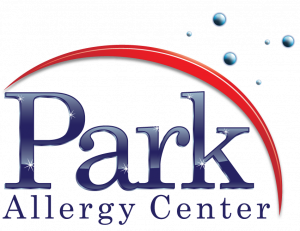If you sneeze and cough during certain times of the year, you may have seasonal allergies. However, occasional allergies aren’t something you just have to live with. An allergist can pinpoint the cause and help you find relief.
In many areas of the United States, spring allergies begin in February and last until the early summer. Tree pollination begins earliest in the year followed by grass pollination later in the spring and summer and ragweed in the late summer and fall. In tropical climates, however, grass may pollinate throughout a good portion of the year. Mild winter temperatures can cause plants to pollinate early. A rainy spring can also promote rapid plant growth and lead to an increase in mold, causing symptoms to last well into the fall.
The most common culprit for fall allergies is ragweed, a plant that grows wild almost everywhere, but especially on the East Coast and in the Midwest. Ragweed blooms and releases pollen from August to November. In many areas of the country, ragweed pollen levels are highest in early to mid-September.
Other plants that trigger fall allergies include:
- Burning bush
- Cocklebur
- Lamb’s-quarters
- Pigweed
- Sagebrush and mugwort
- Tumbleweed and Russian thistle
While the timing and severity of an allergy season vary across the country, the following climate factors also can influence how bad your symptoms might be:
- Tree, grass and ragweed pollens thrive during cool nights and warm days.
- Molds grow quickly in heat and high humidity.
- Pollen levels tend to peak in the morning hours.
- Rain washes pollen away, but pollen counts can soar after rainfall.
- On a day with no wind, airborne allergens are grounded.
- When the day is windy and warm, pollen counts surge.
- Moving to another climate to avoid allergies is usually not successful — allergens are virtually everywhere.
Allergy shots, or immunotherapy, allergen immunotherapy, is a useful thing to do. It’s useful not only because it helps with your symptoms, but it’s truly disease-modifying. It actually makes you less allergic.
Allergist Richard Weber, MD
If you feel like you’re always getting sick, with a cough or head congestion, it’s time to see an allergist. You may think you’re sure pollen is causing your suffering, but other substances may be involved as well. More than two-thirds of spring allergy sufferers actually have year-round symptoms. Your best resource for finding what’s causing your suffering and stopping it, not just treating the symptoms, is an allergist.
Work together with your allergist to devise strategies to avoid your triggers:
- Monitor pollen and mold counts. Weather reports in newspapers and on radio and television often include this information during allergy seasons.
- Keep windows and doors shut at home and in your car during allergy season.
- To avoid pollen, know which pollens you are sensitive to and then check pollen counts. In spring and summer, during tree and grass pollen season, levels are highest in the evening. In late summer and early fall, during ragweed pollen season, levels are highest in the morning.
- Take a shower, wash your hair and change your clothes after you’ve been working or playing outdoors.
- Wear a NIOSH-rated 95 filter mask when mowing the lawn or doing other chores outdoors, and take appropriate medication beforehand.
Our allergist’s treatment has unquestionably resulted in a better quality of life for Kealab.
Kealab’s mom
Your allergist may also recommend one or more medications to control symptoms. Some of the most widely recommended drugs are available without a prescription (over the counter); others, including some nose drops, require a prescription.
If you have a history of prior seasonal problems, allergists recommend starting medications to alleviate symptoms two weeks before they are expected to begin.
One of the most effective ways to treat seasonal allergies linked to pollen is immunotherapy (allergy shots). These injections expose you over time to gradual increments of your allergen, so you learn to tolerate it rather than reacting with sneezing, a stuffy nose or itchy, watery eyes.
Seasonally Related Triggers
While the term “seasonal allergies” generally refers to grass, pollen and mold, there is a different group of triggers that are closely tied to particular seasons. Among them:
- Smoke (campfires in summer, fireplaces in winter)
- Insect bites and stings (usually in spring and summer)
- Chlorine in indoor and outdoor swimming pools
- Candy ingredients (Halloween, Christmas, Valentine’s Day, Easter)
- Pine trees and wreaths (Thanksgiving to Christmas))
Citation: https://acaai.org/allergies/seasonal-allergies

